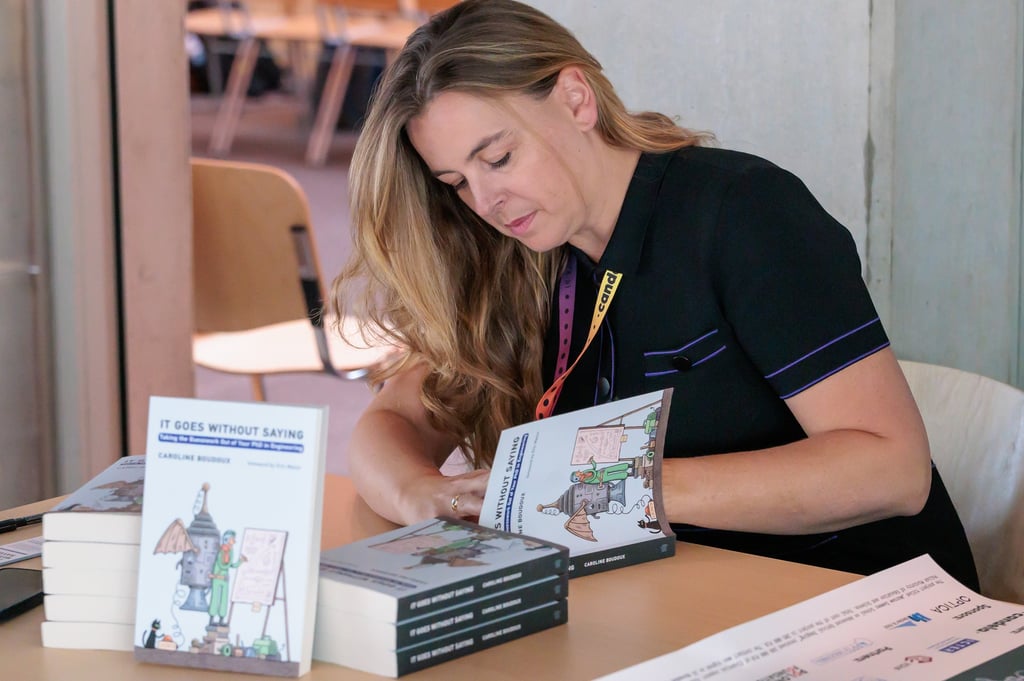How Dr. Caroline Boudoux Uses Light to Unlock the Human Body: The Remarkable Path of a Biophotonics Innovator
How do you see inside the human body without ever making an incision? For Dr. Caroline Boudoux, that question became the driving force of a career that stretches from a childhood spark to groundbreaking research in biophotonics. Her work uses light to reveal what the eye can’t—and it’s reshaping how we diagnose disease. In this feature, we follow her unconventional path from early curiosity to MIT, to leading-edge innovations and a new book demystifying the PhD journey. It’s a story about science, serendipity, and the power of asking better questions.
Iveth Celi
10/17/20252 min read


Most of us never think about what’s happening beneath our skin. How tissues shift, how blood flows, how cells behave. We rely on technology to reveal the invisible. But behind every medical image that guides a diagnosis, there’s a scientist who once asked a deceptively simple question: How do we see what the eye can’t?
For Dr. Caroline Boudoux, that question arrived early at age five during a visit to a Leonardo da Vinci exhibition. While most children were captivated by the flying machines, she was struck by another mystery: the inner mechanics of the human body. That moment, vivid and strangely formative, planted a lifelong fascination that would eventually carry her from Quebec City to MIT and into the heart of biophotonics, the field that uses light to explore the body from within.
Her path wasn’t linear. It wasn’t even planned. In fact, she often describes her career as a mix of calculated ambition, well-timed mentorship, and pure serendipity. What sets her apart is how she embraced each twist, a research opportunity, a book idea, a chance to publish her book, pushing them as launchpads to expand her toolkit and sharpen her purpose, providing well-guided and accurate insights to to other researchers and scientists.
Boudoux is known for pushing the limits of medical imaging. Her work with optical coherence tomography has helped pave the way for faster, sharper, more accessible diagnostic tools. But what makes her story compelling isn’t just the science, it’s the mindset behind it. She’s someone who believes knowledge is meant to be demystified, not guarded; that young researchers deserve transparency about the realities of graduate school; and that curiosity, not confidence, is the real currency of innovation.
Her book, It Goes Without Saying: Taking the Guesswork Out of Your PhD in Engineering, reflects that philosophy. It’s part field guide, part survival manual, part candid reflection on the emotional and intellectual labor behind a PhD.
The Takeaway
This feature takes you through the story behind her research, her writing, and the ideas shaping the next generation of medical imaging. It’s a look at how a child’s fascination with the unseen became a career built on illuminating what’s hidden and why that matters now more than ever.
Updates
Get your daily news summarized in minutes.
Insights
Alerts
© 2025. All rights reserved.
